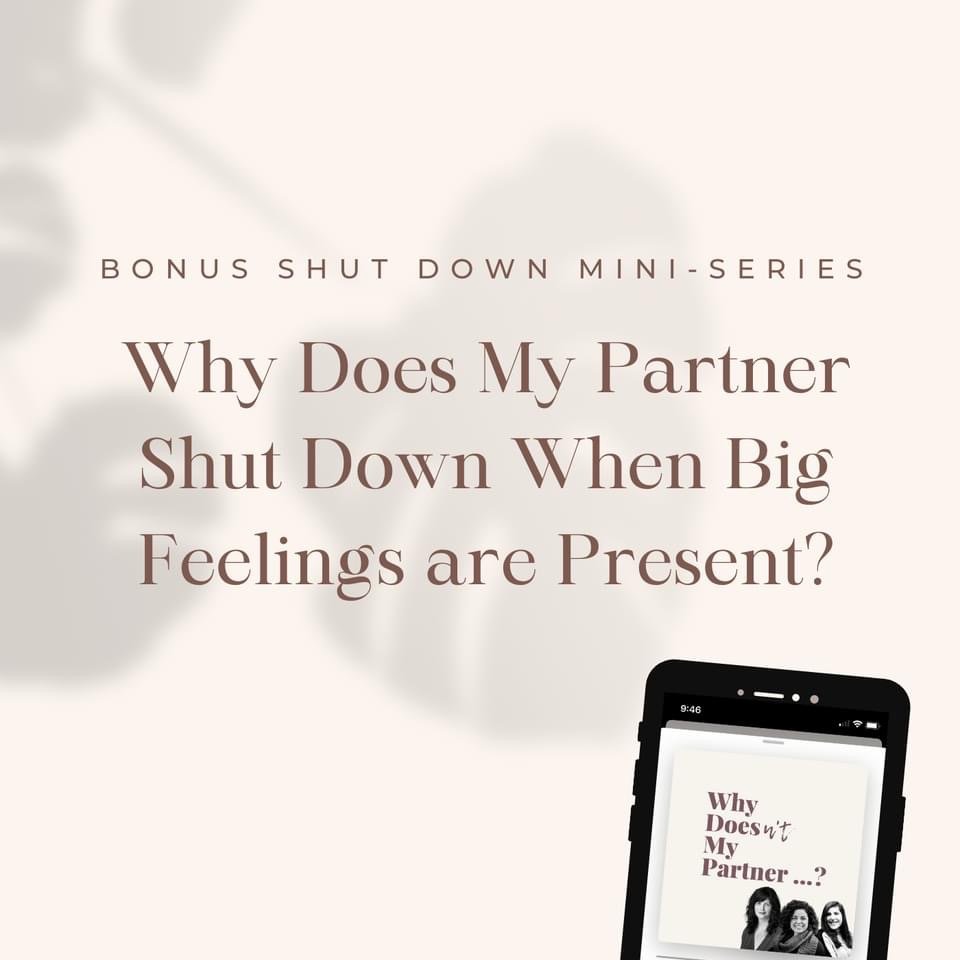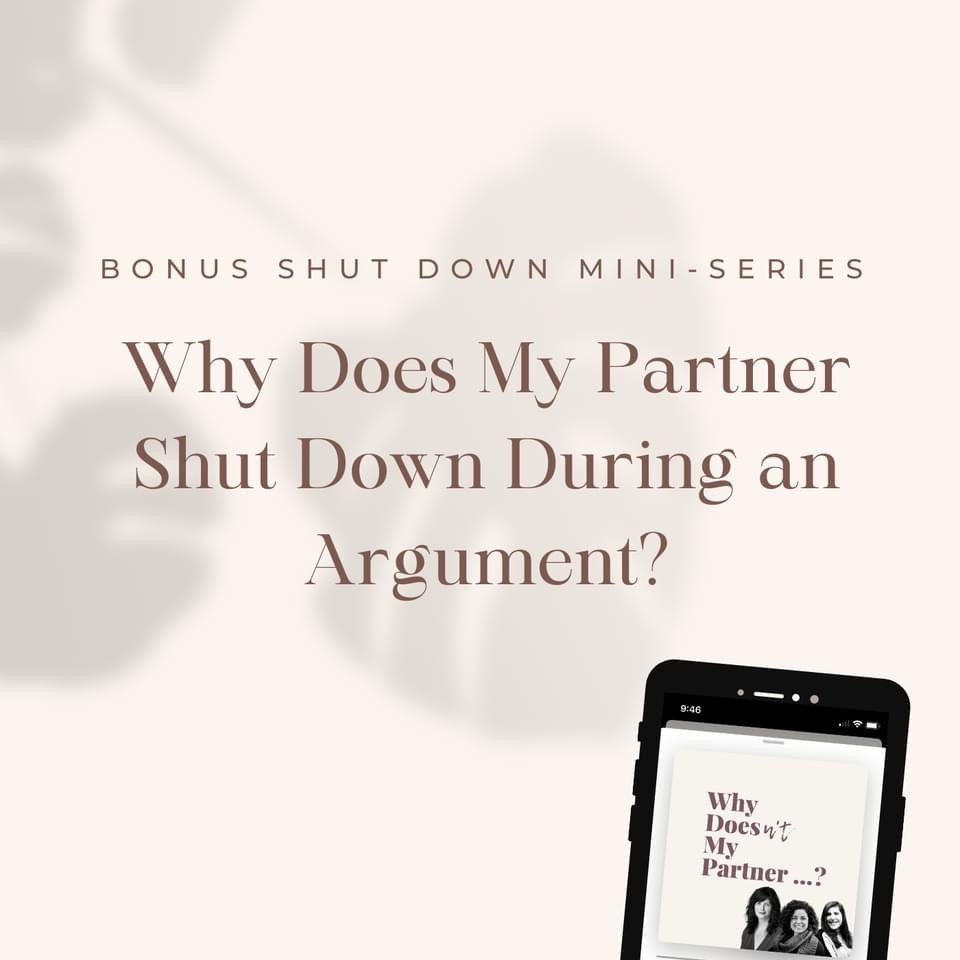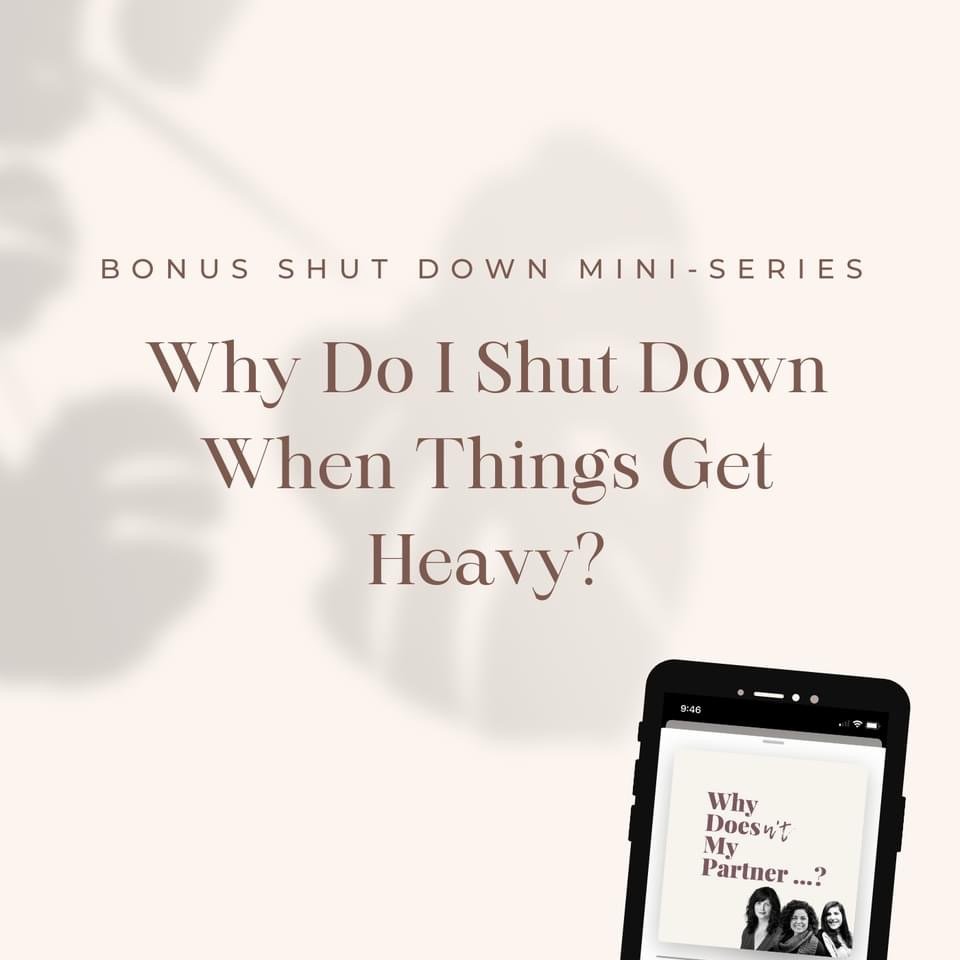We answer questions from people who want help in relationships. These questions echo the conversations that take place over and over again in our therapy offices and take us on a dive deep into the skills at the heart of relational intimacy, greater health, and fulfillment.
send us your question to explore on a future podcast episode
this podcast is not a substitute for therapy with a licensed provider

SHUT DOWN MINI-SERIES: Why Does My Partner Shut Down When Big Feelings are Present?
Last week, in this miniseries on shutdowns, we talked about shutting down in the middle of an argument. This week, we’re talking about shutting down from a slightly different angle: When one of us in the relationship is having big, vulnerable feelings. It can feel scary or vulnerable to express a need or emotion we have, even outside of conflict. So, let’s dig deeper. In this episode, we discuss some differences in why you might shut down when you have big feelings versus why you might shut down when your partner has big feelings, and what these look and feel like internally versus externally. And when our partner shuts down and feels unavailable to us during our big feelings, our brains make up stories about why it's happening. Curiosity and slowing down are the keys to moving through these moments–because often our stories are just that–the crux of moving past our shutdowns is in examining the stories we make up in our heads when they happen. The stories we make up in our heads about why our partner is shutting down and what happens when our story is proven right.
That wraps up our shut down mini-series. We'll be back soon with season 3.

SHUT DOWN MINI-SERIES: Why Does My Partner Shut Down During an Argument?
If your partner tends to shut down in the middle of an argument, the reason why is simple. However, often the simplest things are also the most complicated. This week, let’s dig into the varied reasons underneath the simple surface layer and discuss what can be done about it. Shutting down can become embedded in the relational dance between us and our partners, a spiraling chain of events in which you both circle back on repeat patterns while traveling forward at the same time. But with some tracking and self-awareness, you can begin to change the steps of your dance and create something new.

SHUT DOWN MINI-SERIES: Why Do I Shut Down When Things Get Heavy?
Shutdowns can look and feel different for each of us. Sometimes deep and immediate, sometimes a slow drip toward isolation. Numbness, wordlessness, sometimes seething, sometimes out-of-body. We all shut down sometimes, even if it isn’t our usual modus operandi. But why do they happen in the first place? And what can we do about them? It all starts with noticing. In Part One of our series on shutdowns, we talk about trauma responses in the body and our developing brain throughout the life cycle—it turns out our brains don’t stop developing after adolescence. We share our personal experiences with shutting down and—surprise!—they’re very different from each other. We talk about self-soothing versus coregulation. We ask: When one of us is shutting down, what would be a relationally healthy thing to do? The ultimate goal is always in undoing the aloneness.

Introducing The Shut Down Bonus Mini-Series
Dear listeners, we have a little surprise for you while we’re in between seasons. We have created a 3-part series on “shut-downs” in relationships and will roll out segments of the series over the course of the next few weeks.
To start, this week, we have an introduction for you on shut-downs: We discuss why shutting down during hard conversations might be the worst thing you can do in a relationship over the long term. We discuss different types of shutting down (perhaps one or all of them will sound familiar?) And, because shutting down is so common in relationships and not even therapists are immune, we share how shutting down shows up for each of us in our relationships.
Join us now and stay tuned for more, as we take this conversation deeper discussing different facets and instances for when we or our partners shut down and what we can do about it.

